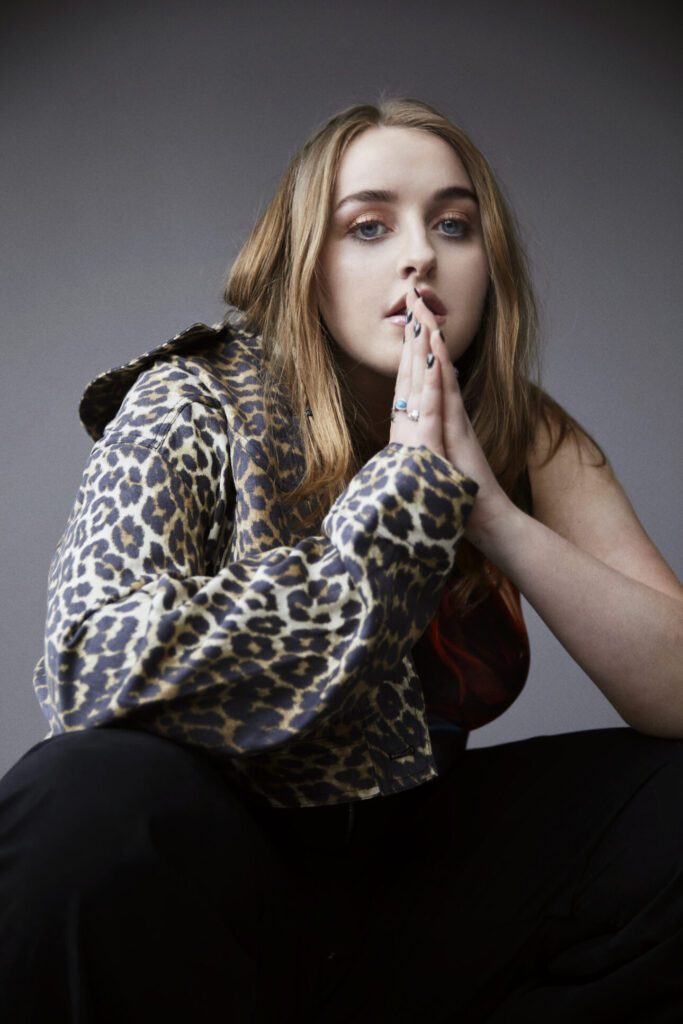
It was an unassuming early afternoon at Latitude Festival in Suffolk, U.K. at the height of summer 2023 and most of the attendees had barely roused from their slumber after an emotional headline performance from Pulp the night before. The air was still, save for a frisson of anticipation at the far corner of the site, a concentration of youthful excitement loosely formed into a queue of hundreds outside one of the festival’s marquee tents. The stage’s security guard, looking somewhat bemused, said he had not seen this level of demand on this stage in 10 years.
The meteoric rise of 20-year-old Irish singer-songwriter Nell Mescal as a representative voice for Gen Z audiences had blindsided the Latitude bookers, but on this occasion, the scale of the turnout rocked Mescal herself, too.
More from Spin:
“It was one of the few times when I had something stuck in my throat when I was singing,” Mescal reflects, speaking over Zoom from her family home in County Kildare shortly after Christmas. “I was like, wow, I’m going to cry.”
With tracks like the heart-swelling “In My Head” from last year’s Teeth EP, or her latest single “Killing Time,” boasting her most expansive, swaggering, radio-ready pop energy to date, Mescal is tapping into a storytelling technique that is resonating loudly with her audience. Her tales of early adulthood romances and the tangled, wrenching ups and downs of intimate female friendships allow her fans to see her life with a clear, shared vision, blemishes and all. They know she is telling the truth in her music, they can feel it.

“I genuinely just don’t know how to write any other way,” she explains. “I don’t know how to put a facade on. I love bands that have a whole aesthetic, but that’s difficult to hone when it’s just you. I’m not an aesthetic, I’m just a human.”
Mescal grew up around country music, informed by her parents’ choices and those of her older brothers Donnacha and Paul, the latter of which has become a household name due to his burgeoning Hollywood career (Normal People, Aftersun, Gladiator 2). It was not until she moved to London in 2021, however, that she realized that her burgeoning interest in writing music could become a viable career option.
Finding solace in London’s Irish music community, alongside the likes of CMAT, Kojaque and Lucy Blue, Mescal bounced between quick success – supporting Florence + the Machine and HAIM – and a very contemporary form of crippling self-doubt.
“You get so down with yourself when you see people on TikTok that have millions of people watching them every single day,” she says. “I don’t have that. Someone called me a TikTok star and I was like, I wish! Life would be so much easier.
“I find it really hard,” she continues. “We’re constantly told we need to post every day, it’s a rat race.”
Back in the material world, though, Mescal is riding a wave, boosted by her ineffable charm, which she carries on stage. Her gigs invariably see her chatting with her audience between songs with a down-to-earth, easy wit that only strengthens the rare bond she has cultivated with them.
“I wanted to be someone who is quite mysterious and had a different name,” she says, with a typically self-effacing sigh. “But I just can’t do it, I talk too much.”
“Killing Time” is the first single from a new EP, due in April, produced by Duncan Mills (James Murphy, Florence), but Mescal is aware that anticipation is already running high for her debut album. When pushed, though, the trademark self-deprecating wit is placed on hold, and the true, sparkling confidence that lies underneath shines through.
“If I do decide to write it,” she says, “I’m going to take my time with it. I’m not going to let someone else decide on it. I want to be here in 40 years.”
To see our running list of the top 100 greatest rock stars of all time, click here.
